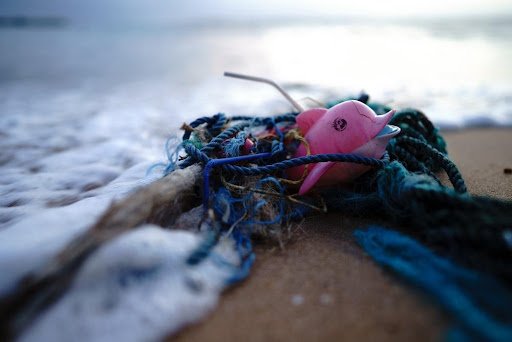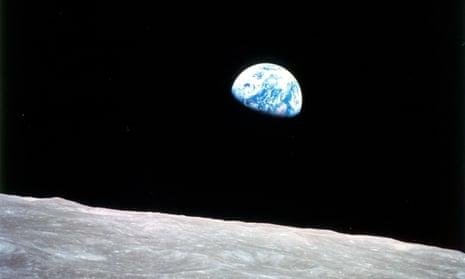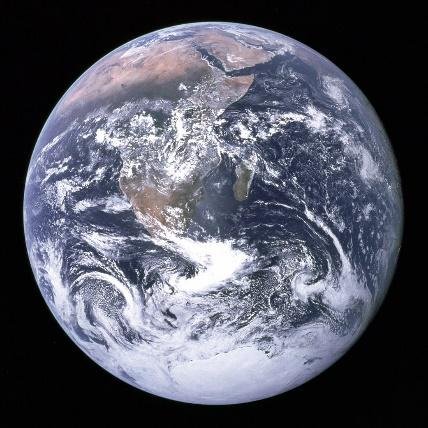Protecting the Beautiful Blue: Why it’s All of Our Responsibility

I am so happy to be part of the April 2023 Associate Programme with On Purpose. I joined the programme to build on my leadership skills and grow my understanding of how to affect and measure social and environmental impact.
The ocean covers approximately 70% of our Earth's surface. However, more than 80% percent of this huge underwater world remains unmapped and unexplored. In fact, it’s often said that more is understood about the surface of Mars and the Moon than about our ocean floor.
While our understanding is improving all the time, a historic lack of knowledge and appropriate planning have been key human causes for the widespread destruction of ocean habitats and biodiversity loss to date.
In this post, I will outline what is driving the destruction of ocean life, why healthy oceans are so important, the potential impact of the growing Blue Economy and what we can do as individuals to help protect marine ecosystems.
Biodiversity in decline - the drivers of marine habitat destruction
As someone who cut fish from my diet at the start of the year, I was keen to explore the impact fishing has on marine biodiversity. Historically, the impact has been severe. For example, in 2006 North Sea Cod stocks “collapsed” following a sustained period of decline since the 1970s due to excessive fishing. Cod are both predators and prey, so dramatically depleting their numbers causes considerable disruption to the marine food chain. Worse still, it is not only fish that are under threat from fishing, WWF stated in 2021 that overfishing puts more than one-third of all sharks, rays, and chimaeras at risk of extinction. It is estimated that somewhere between 600,000 to 800,000 tonnes of discarded fishing gear ends up in our oceans every year. This smothers marine habitats, entangling and killing thousands of species.
Pollution poses another serious threat to marine ecosystems, with the most common physical pollutants being chemicals and plastics. Many chemicals polluting the ocean are caused by human activities which run off into waterways leading to the ocean. Humans are also responsible for a significant percentage of plastic and litter in the ocean. In addition to large items and shocking “islands” of plastic and rubbish which are known to kill birds and marine species, there are millions of tonnes of microplastics. Microplastics can be ingested by even the smallest of organisms in the sea, working their way up the food chain until they can be found in the tissues of larger species, including the fish humans eat.
A less visible but just as serious pollutant in our oceans is noise, caused by wind farms, shipping, or underwater construction to name a few sources. Because of the density of water, sound travels faster and wider than it does through air. Not only does noise pollution cause marine species a huge amount of stress, it disrupts feeding, breeding and communication, all of which are vital for survival.
Unsurprisingly, climate change is having just as devastating an impact at sea as it is on land. NASA reports that the sea has absorbed 90% of the warming that has occurred in recent decades due to increasing greenhouse gases. The top few metres of the ocean store as much heat as the Earth's entire atmosphere. As temperatures rise, oxygen levels in the water lower. Cold-blooded species are either forced to migrate, or (for stationary or slow-moving species) face extinction.
Another result of the climate crisis is seawater acidification. The ocean absorbs around 30% of CO2 released due to human activities. As this CO2 dissolves, it forms carbonic acid which decreases the ocean’s PH, increasing its acidity. Acidification is not only incredibly harmful to organisms and entire food chains, it also reduces the ocean’s ability to store CO2 and help regulate the climate.
There are undoubtedly many more complex reasons that biodiversity in our oceans is facing rapid decline. However, it is clear from just the few examples in this post that humans bear a large responsibility.
Why should we care? Because our lives depend on it
The ocean is crucial to our survival in many ways. Not only does it absorb considerable amounts of CO2 for us, the ocean also protects many coastal communities from natural disasters. Coral reefs provide an important barrier that protects coasts from waves, storms, and floods. If reefs are destroyed, this leaves coastal communities more vulnerable to normal wave action as well as violent storms. Unfortunately, coral bleaching (whereby coral expels the microscopic algae it relies on due to stress) is another climate change related phenomenon. Bleaching can lead to death of coral and therefore the destruction of this protective barrier, not to mention the home of thousands of living species.
Humans also rely on the ocean for food and livelihoods, particularly in developing coastal communities. The depletion and extinction of any species, has a knock-on effect across the food chain and therefore on what people can fish. As with many climate issues, it is the communities causing the least harm that will be most severely impacted. Often countries with the highest responsibility have multiple food sources upon which to rely, but for “developing” countries the loss of species in our oceans can be catastrophic for both diet and income.
A less well-known way in which the ocean is supporting humanity is via the development of medicines. Marine pharmacognosy – the study of sea-dwelling species of medicinal value, is a burgeoning field. For example, the very sweetly named Sea Squirt was discovered to have skin cancer-fighting capabilities, and several marine plants, fungi and sponges can help fight COVID-19. According to the National Oceanic and Atmospheric Administration: “marine invertebrates produce more antibiotic, anti-cancer, and anti-inflammatory substances than any group of terrestrial organisms”.
Finally, and while this list is not an exhaustive list of reasons, we should protect our ocean for its beauty and remarkability. The ocean forms such a huge part of our planet and provided Apollo 8 and 17 with these breathtaking views from space:


This beautiful environment is home for so many animals, plants, and microorganisms. There are 250,000 known marine species, but it is said that two thirds are still unidentified. I believe all the species we share this planet with deserve protection and a good quality of life. Therefore, we should protect our marine environments because it is a decent and humane thing to do.
The Blue Economy - a sustainable solution to marine destruction?
The ocean is already doing so much for us, and we are guilty of using its resources without proper planning and care. To aim to protect our oceans merely so we can exploit them to the same degree would be counterproductive and irresponsible. We need to find ways to interact with the ocean respectfully and sustainably, which is the aspiration of the Blue Economy. The Blue Economy is defined by the World Bank as “the sustainable use of ocean resources for economic growth, improved livelihood and jobs, and ocean ecosystem health”. What concerns me is the prediction that this economy is likely to grow at twice the speed of the regular economy by 2030. History would suggest that mankind is unable to achieve sustained economic growth in a responsible way for our environment.
Of course, we should want the Blue Economy to grow and prosper - it offers renewable energy solutions and could be particularly beneficial for the economic development of Indigenous and local communities. However, it waits to be seen if this rapid growth can take place sustainably.
What can we do about it?
I want to finish this piece with some examples of what people can do to protect our oceans and the marine ecosystem.
All waterways lead to the sea
I believe the first step is a change in mindset. Because a lot of us rarely see the sea, I wonder if there is an “out of sight, out of mind” mentality at play. I think for many of us living in cities and towns far from the coast, it is easy to forget that the water we use every day could at some point end up in the ocean. The River Thames in London is said to have some of the highest recorded levels of microplastic for any river in the world, with scientists estimating that 94,000 microplastics per second flow down the river. This water ends up in the sea along with its plastic, chemicals and other human caused pollutants. Even if we live nowhere near the sea we must all make an effort to minimise water pollution. Simple steps like taking rubbish home after picnics near the river and being conscious of what you are flushing down the toilet or putting down the sink, can make a huge difference if we all take responsibility as a collective.
Eat more ‘Good Fish’
As mentioned, an action I took was to stop eating fish. Personally, I don’t eat any fish because I don’t believe it is worth any animal dying or suffering for the sake of my pleasure, when there are so many other foods to choose from. However, I appreciate that diet is a personal choice, and I believe a considerable positive impact could be achieved if everyone re-considered the quantity of fish they consumed and began really questioning where the fish they eat comes from. To make it easier for people to understand the impact their fish choices have on the ocean, MSCUK have created this handy ‘Good Fish Guide’. The tool helps you assess which are the more ocean-friendly fish choices and when you may need to ask vendors for more information to understand the true impact.
Get involved in a beach clear up
If you find yourself near the sea, a brilliant thing to do is get involved in a beach clear up. I spoke with Emily Stevenson, who founded Beach Guardian with her dad. Following films such as BBC’s Blue Planet 2 and A Plastic Ocean, Emily observed a peak in public concern around the state of our oceans. Emily and her family had been cleaning their local beaches for years, but saw the opportunity to galvanise their local community into a collective, ongoing effort. Beach Guardian has been running regular clean up meets since 2017 and regularly visits schools across the country to educate students of all ages on how and why we should protect our oceans.
Write to your MP
When I asked Emily what she thought the most important thing people should do to support marine environments, her response was simple – write or tweet your MP, asking them what they are doing about plastic pollution. MPs have an obligation to read what is sent to them, and if enough people write about an issue, it is in their favour to represent their constituents in government.
The marine environment is vast, complex, and relatively unknown. Here I have only scratched the surface of the causes and solutions to marine biodiversity loss. Perhaps it will inspire you to find out more about how your actions are impacting the ocean, and hopefully consider actions you can take to help.
